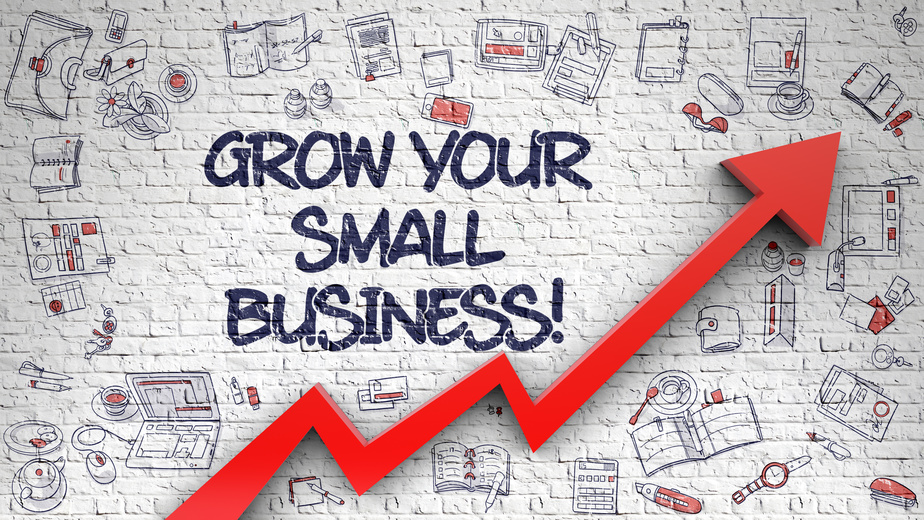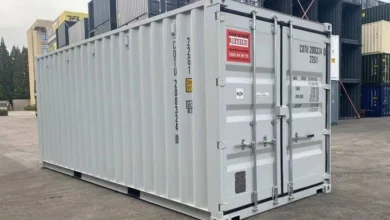
What is the Estimated Cost to Start a Small Business?
Did you know that 5.4 million companies filed for new business applications last year, according to the American Census Bureau?
Starting a small business can be a daunting task. You have to come up with an idea, invest time and money, and then hope that it takes off.
It’s no wonder so many people are hesitant to start their small businesses- the cost can be prohibitive. Between renting office space, buying equipment and supplies, and hiring employees, the initial investment can be tens of thousands of dollars.
But don’t worry. Keep reading because we’ve put together this guide to show you the estimated cost to start a small business and help you start your small business on a shoestring budget. You’ll find tips on where to find affordable office space, how to get free or discounted equipment and supplies, and ways to reduce your employee costs.
Table of Contents
What Is the Estimated Cost to Start a Small Business?
When it comes to starting a business, the adage “you have to spend money to make money” is often true. However, the amount of money you need to start a business depends on the type of business you want to run. For example, a small retail business or a service-based business such as dog walking or house cleaning can be started for less than $3,000.
On the other hand, businesses that require a significant upfront investment, such as a restaurant or manufacturing business, can easily cost tens of thousands of dollars to get off the ground. Of course, there are always exceptions, and some businesses can be started for less than $1,000.
But in general, the more you’re able to invest in your business at the outset, the better your chances of success will be.
The Most Expensive Parts of Running a Business
There are many different costs associated with starting and running your own business. Let’s have a look at them now in more detail:
1. Business Premises
One of the most important – and expensive – aspects of starting a business is finding the right premises. If you’re planning on working from home, you may be able to avoid rental costs altogether. However, if you’re looking to rent or buy office space, this can be a significant expense.
There are a few things to keep in mind when searching for business premises. First, consider the location – it’s important to choose a location that is convenient for your customers or clients. Second, think about the size of the space – you’ll need enough room to accommodate your team and inventory.
And finally, don’t forget to factor in the cost – rental prices can vary widely, so it’s important to find a space that fits your budget. With a little bit of planning, you can find the perfect business premises for your new venture.
2. Inventory
The cost of inventory is an important consideration for any business owner. The amount of inventory that a business needs to maintain will vary depending on the type of products or services they offer. For example, a business that sells physical products will need to factor in the cost of manufacturing or purchasing those products.
On the other hand, a service-based business will need to consider the cost of materials and supplies. Additionally, businesses will need to account for the cost of storing inventory, which can vary depending on the size and quantity of inventory. By carefully considering the cost of inventory, business owners can ensure that they can keep their businesses running smoothly and efficiently.
3. Employees
Employees are one of the most important parts of any business. They are the ones who interact with customers, clients, and patients. They are the ones who sell products and services. They are the ones who make a business run. However, employees can also be one of the most expensive parts of a business.
You’ll need to factor in salary costs, as well as any associated employee benefits. Employee salaries can account for a large percentage of a business’s expenses, so it is important to carefully consider how much you are willing to pay your employees. In addition to salary costs, you will also need to factor in the cost of employee benefits, such as health insurance and retirement plans.
Employees are an essential part of any business, but they can be a costly investment. Before hiring employees, be sure to carefully consider all associated costs.
4. Marketing and Advertising
Marketing and advertising are essential for any business, but they can also be very expensive. It’s important to budget for these costs from the outset so that you don’t find yourself in a situation where you can’t afford to promote your business effectively. There are several different ways to market a business, so it’s important to choose the right mix of activities for your company.
To get started, you could create a website and social media accounts, and then use these channels to drive traffic to your store or online platform. You could also consider traditional advertising methods such as print ads, radio or TV commercials, or direct mail.
And don’t forget about word-of-mouth marketing – this can be one of the most effective forms of marketing, and it doesn’t cost anything! Whatever marketing mix you choose, make sure you have the funds available to make it work.
5. Insurance
Insurance is a necessary expense for any business, as it protects you against risks such as property damage, liability, and theft. While the cost of insurance can be significant, the potential cost of not having insurance is even greater. Without insurance, your business would be at risk of having to pay for damages out of pocket, which could quickly bankrupt your company.
In addition, if someone were to sue your business, you would be responsible for all legal fees and any resulting judgments. Insurance may seem like an unnecessary expense, but it is a vital part of running a successful business.
6. Licenses and Permits
Depending on the type of business you’re running, you may need to obtain licenses and permits from local, state, or federal authorities. These can be costly, so it’s important to factor them into your start-up budget. For example, if you’re planning to open a restaurant, you’ll need to obtain a food license from your local Health Department.
Similarly, if you’re starting a construction company, you’ll need to get a contractor’s license from your state. In addition to the cost of the license itself, you’ll also need to pay for any required bonding and insurance. Failure to obtain the proper licenses and permits can result in hefty fines, so it’s important to do your research before starting your business.
7. Technology
In today’s business world, technology is essential. You’ll need to factor in the cost of computers, software, and other technological tools when you’re planning your budget. The good news is that there are many affordable options available. For example, you can buy used computers or subscribe to cloud-based software programs.
And don’t forget to take advantage of free resources like social media and online productivity tools. By being savvy about your technological needs, you can create a successful business without breaking the bank.
How to Get Your Business Started For Less
Starting a small business can be a daunting task, but it doesn’t have to be an expensive one. There are several ways you can get your business off the ground without breaking the bank. Let’s look at them now:
1. Get Creative With Your Funding
Starting a small business can be a big undertaking, and one of the most daunting aspects is often finding the funding to get off the ground. However, there are several options available for financing your small business, so it’s important to do your research and explore all the possibilities.
One option is to look into government grants and loans. While the application process can be competitive, there are often programs available that can provide you with the funds you need to get started. Another option is crowdfunding. Platforms like Kickstarter and Indiegogo can be great ways to connect with potential donors and raise the money you need.
And finally, don’t forget about personal loans from friends and family. This can be a great way to get started without going into debt. Whatever route you decide to take, remember that there are options out there for financing your small business. So don’t give up – keep exploring until you find the right fit for you.
2. Keep Your Overhead Low
For any business, large or small, one of the most important keys to success is controlling costs. And one of the best ways to keep costs down is to keep your overhead low. That means avoiding leasing expensive office space and instead of working from home or a shared workspace.
Of course, it’s not always possible or practical to work from home, but there are a growing number of shared workspace options available that can be much more affordable than leasing your own office. And by keeping your overhead low, you’ll have more money available to invest in other areas of your business.
3. Make Use of Technology
When it comes to starting a small business, technology can be a great asset. Online tools can help with everything from accounting and invoicing to project management. And thanks to social media, it’s easier than ever to market your business for free. Of course, technology can also be a bit of a learning curve.
But the effort is worth it when you consider all the time and money you’ll save in the long run. So if you’re ready to take your small business to the next level, don’t forget to make use of technology.
4. Hire Freelance Help
When you’re starting a business, there are a lot of costs to consider. One of the biggest expenses is salaries and benefits for employees. If you’re not careful, this can quickly eat into your profits. One way to save money is to hire freelance help instead of full-time employees.
Freelancers are often just as skilled and experienced as full-time employees, but they don’t come with the same high price tag. This can help you keep your costs down and improve your bottom line. Of course, there are some drawbacks to hiring freelancers. They may not be as reliable or committed as full-time employees, and you may have to put in more effort to manage them.
But if you’re smart about it, hiring freelancers can be a great way to save money on labor costs.
5. Shop Around for Supplies
As any business owner knows, supplies are essential for keeping the operation running smoothly. From office supplies to raw materials, there are a lot of costs associated with keeping the business stocked and ready to go. However, it’s important to remember that not all suppliers are created equal.
It’s always worth taking the time to shop around and compare prices before making any purchase. By taking the time to find the best deals, you can save your business a lot of money in the long run. So next time you need to restock your supplies, take a few minutes to compare prices and find the best deal. Your bottom line will thank you for it.
For more help with starting your own cleaning business, go here: http://www.bookingkoala.com/blog/how-to-start-a-cleaning-business-on-a-low-budget/
Want More Cost-Saving Tips?
Starting a small business can be an incredibly rewarding experience, but it’s not without its costs. Thankfully, there are ways to minimize those costs and get your business off the ground.
Check out our blog for more articles like this that will help you start your small business on a shoestring budget.
Also, please share this article with anybody you know who is looking to start their own business, wants to know the estimated cost to start a small business, and needs more cost-saving tips and advice. They’ll thank you for it!








